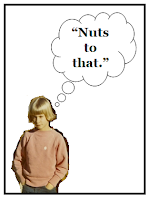When Bad People Write Good Books
In between the 2013 publication of novel #3 (HEAVENLY MOVES) and completing the to-be-published-in-2020 novel #4 (THE BOOK OF KELL), I wrote several short stories. One grew to novella length, in part due to the protagonist's occasional philosophical ramblings. In this excerpt, she muses about a person in her life who is no angel:
So with these kinds of thoughts already on my mind, I really enjoyed a recent article in the New York Times' book section by Brian Morton, who directs the writing program at Sarah Lawrence College. It discusses authors of great books who weren't always such great people themselves: racists, misogynists, homophobes, general ignoramuses. You know the type.
The article focused on old books from times when prejudices and practices we now find abhorrent were the norm. And those authors were expressing the norms of their times.
I've often picked up a book that was a childhood favorite and winced at the author's attitudes toward women or people of color. And then winced again at my much younger self for accepting that stuff as okay. Some of those books I still read - the good parts far outweigh the bad. Some I have had to set aside with a shudder. A shudder and gratitude for whatever I'd learned from that book, which sometimes was just This Is Not How I Want To Be. (a valuable lesson indeed)
I remember reading lots of mid-20th century juvenile science fiction books when I was a kid because that was what my older brother was bringing home from the library. At first, I enjoyed the adventures, the glimpses into the future, the break from my own wild imagination while experiencing someone else's. Then I started noticing a trend. Lots of future space families with the mom, dad and two kids - okay. But it seemed like, time after time, Space Mom had once been the champion star pilot in her class at the academy (or whatever), but then decided against a career in favor of getting married and having kids. "Nuts to that!" said ten-year-old Amy. (who then rode her banana-seated bike to the library and got her own damn books)
Long ago, I took a Driver's Ed class in high school. (period costumes: Izod polo shirt, Ocean Pacific corduroy shorts, Vans) It was the classroom part with no actual vehicles or driving involved. (Teenage Amy is still pissed at you, Proposition 13. Don't think I've forgotten.) It was summer school, it was hot, it was a required class and the teacher was one of the assistant football coaches. It was not the most intellectually engaging course I have ever taken. (Think Red Asphalt.) But the coach did say one thing I've never forgotten and have continued to apply to not only my driving, but life itself.
"When the car in front of you has its turn signal blinking for miles and miles because the driver forgot to turn it off, instead of getting angry or frustrated, ask yourself: is MY turn signal on?" he said.
In a lifetime of driving, odds are the answer will be YES at least once. (D'oh.) And in a lifetime of checking the internal moral compass, it's always good to ask yourself: is YOUR turn signal on?
I don't really have advice as to what to do when bad people write good books. I guess each of us must make his or her own determination as to what bad is and how much is acceptable to earn a place on the book shelf.
(Alternative ending: Nuts to that!)



Comments
Post a Comment